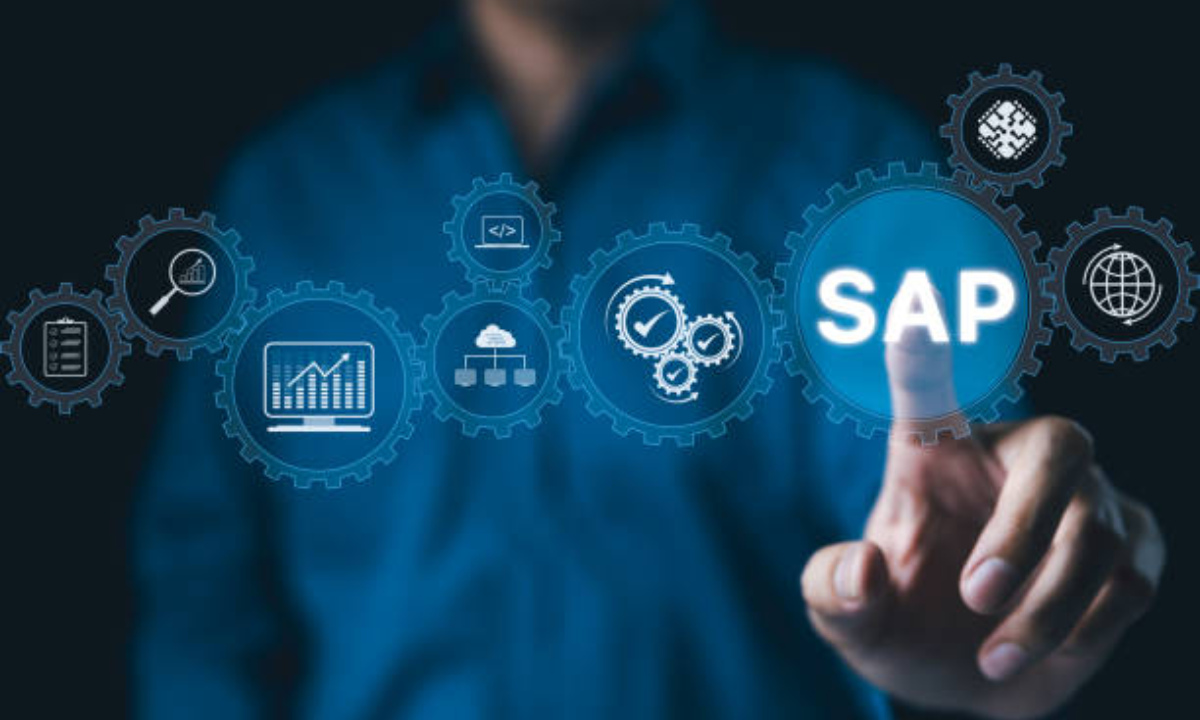Table of contents:
|
1. What Is SAP and What Does SAP Do? |
|
2. What is SAP software used for? |
|
3. An Introduction to sourcing SAP software |
|
4. Take a closer look at SAP modules |
|
5. Business Integration using SAP ERP software |
|
6. Controlling finances and sales |
|
7. Why a SAP course in Bangalore is popular |
|
8. Conclusion |
Managing an international business is like conducting an orchestra—every part must be in sync. SAP software acts as the conductor by integrating key functions such as finance, operations, human resources, and customer data. SAP is widely implemented to coordinate company processes and enable quicker decision-making. More than a data keeper, SAP offers actionable intelligence, a flexible design, and modular add-ons for all industries. This article clarifies SAP's history, main uses, and its transformative impact. You'll learn why top companies invest in SAP, how they prepare their teams, and what to know before starting your SAP journey. We will also briefly cover real-world success stories and factors to consider when choosing between on-premise and cloud SAP solutions.
What Is SAP and What Does SAP Do?
SAP stands for Systems Analysis Program. At its core, SAP provides integrated applications that manage essential business functions in a unified environment. SAP goes beyond databases by providing centralized modules in finance, operations, supply chain, and human capital, using a common data model. By dissolving silos, SAP helps organisations centralise reporting, streamline processes, and ensure information is accurate and current across departments. Understanding SAP’s role reveals its value in boosting productivity and collaboration.
What is SAP software used for?
A frequently asked question is what SAP software is being utilized in real operations. SAP enables:
-
Real-time period consolidation and reporting.
-
Auto Ordering and Goods Management
-
Scalable human resources management
-
Evidence-based sales modelling
-
Audit preparedness and compliance tracking
By posing the question: What is SAP software used for? To them, companies learn that they can configure the platform to meet the specific requirements of the industry-specific planning of raw materials in the manufacturing sector, through to case management in the fields of public service. SAP offers custom analytics and configurable workflows to support best practices in key business processes, which enables businesses to be consistent and compliant across various locations.
An Introduction to sourcing SAP software
When discussing digital transformation, business leaders often highlight SAP as vital to their IT strategies. SAP is seen as an integrated business structure connecting front offices, back offices, and supply chains. This integration reduces errors and shortens cycle times by standardizing data and governance. Companies aiming for rapid growth or global presence use SAP to create a uniform foundation for expansion. SAP's extensibility, allowing industry-specific features and third-party integrations, ensures companies can adapt SAP to their unique needs.
Take a closer look at SAP modules

One of the most distinguished features of SAP is its modularity. Having a closer look at the SAP software uses allows one to understand how companies modify it to various needs. The most important modules are the following:
-
Finance (FI): General ledger, accounts payable/receivable, and asset management
-
Controlling (CO): internal reports via Cost centre accounting
-
Materials Management (MM): Purchasing, Vendor management, and inventory
-
Sales and Distribution (SD): cash to order cycle and pricing
-
Production Planning (PP): This is based on the schedules concerned with the manufacturing and capacity planning
-
Human Capital Management (HCM): Payroll and performance, employee records
Modular modules interact, share a common database, and provide end-to-end visibility of the process. Knowledge of SAP software use enables the organization to carry out planning to ensure that the implementation is aligned with the strategic requirements without wasting resources through duplication of information input, as well as the creation of cross-functional integration.
Business Integration using SAP ERP software
Companies that want to have uniform control of heterogeneous systems find comfort in SAP ERP software. This main package automates and synchronizes the processes in the areas of finance, purchasing, production, sales, and distribution. As an illustration, with a sales order confirmation, SAP ERP software can promptly verify inventory status, lock materials, and make a production order straight away without any intervention. This degree of automation is not only faster in its order cycle, but also enhances the accuracy of data, as well as customer satisfaction. In addition to on-premise, SAP has other ERP options that run on the cloud, and scale with the demand and ease the infrastructure burden during the digital transformation process.
Controlling finances and sales
Tight billing and revenue recognition are critical to good cash flow and accuracy. Several companies use SAP billing software to take care of the invoice, payment processing, and dispute management with fully automatic processes in place. Improvement: Integrating with SAP Finance and sales modules, SAP Billing software will ensure that pricing, taxes, and discounts are calculated consistently. Finance departments can see clearly where their receivables may be in collections, write-offs, and aging reports by using real-time dashboards. Globally, regulations are getting more and more complex, so automating them can help minimize errors and accelerate month-end close, and allow teams to dedicate their time to working on strategic financial planning.
Why a SAP course in Bangalore is popular
To invest in SAP solutions, professionals are needed to implement, configure, and maintain the solutions. This is why many applicants seek an SAP course in Bangalore, which is famous as a centre of good training with quality institutes and experienced trainers. The learning objectives of a typical SAP course in Bangalore include the basics of SAP, best approaches to implementation, and practical tasks in testing environments. Graduates will be prepared to contribute to practical projects, as well as obtain desired SAP certifications. To the firms, sponsoring employees to take part in such programs enhances productivity, fast-tracking of projects, as well as developing expertise within the firm without necessarily having to employ outside consultants.
Conclusion
SAP has grown in complexity to become an enterprise engine to spur automation, standardization, and growth. SAP supports organizations in terms of breaking data silos by providing modules in different areas and levels, such as finance, procurement, billing, and human resources to mention a few. The implications of the definition of what SAP software is entail why leading organizations spend a lot of money on SAP systems and critical training initiatives in order to remain competitive.
No matter the scale of your project, whether it be a new implementation or process optimization, the SAP ecosystem is the place to find tools, community, and flexibility. With the change in the enterprise technology landscape as AI, IoT, and blockchain take the centre stage, digital strategies can be future-proof by using platforms such as SAP S/4HANA and SAP Cloud Platform to offer efficiency, adaptability, and long-term growth.
Apponix is a leading training institute that provides a complete SAP course in Bangalore with an industry-relevant curriculum and placement assistance- apply now to book your seat and kick-start your SAP career!





